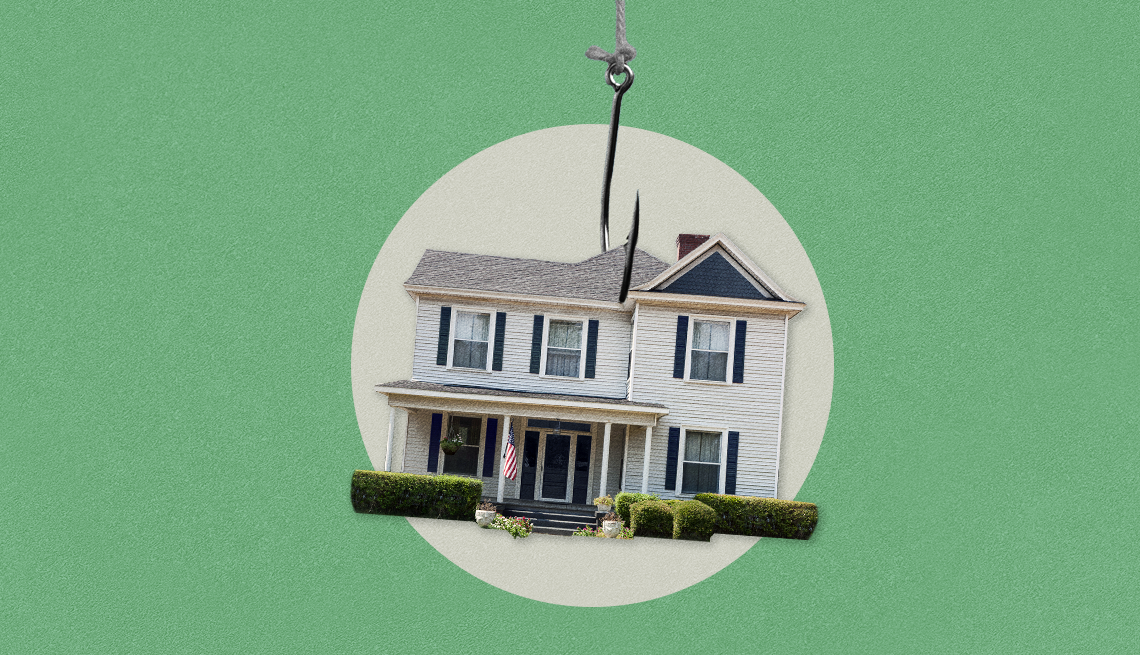AARP Hearing Center


Since his untimely death from a heart attack in 1977, Elvis Presley’s adoring fans have been flocking to his home to pay their respects. This spring, however, Presley’s mansion in Memphis, Tennessee, attracted an entirely different kind of admirer: Naussany Investments & Private Lending (NIPL), a dubious investment firm that tried to sell the King’s Graceland estate after purporting to have acquired the deed from his late daughter, Lisa Marie Presley. According to a lawsuit filed by actor Riley Keough, who is Elvis’s granddaughter and Graceland’s trustee, NIPL claimed to have granted a $3.8 million loan to Lisa Marie Presley in 2015, at which time she offered the deed to Graceland as collateral. When the company advertised the home’s sale at a foreclosure auction in May, Keough asked a county court to block it on grounds that neither NIPL nor its documents were legitimate.
“The purported note and deed of trust are products of fraud and those individuals who were involved in the creation of such documents are believed to be guilty of the crime of forgery,” states Keough’s lawsuit, which was swiftly resolved when the notary listed on NIPL’s documents denied notarizing them, causing a judge to halt Graceland’s sale. Soon after, several media outlets reported receiving unverified emails from an individual claiming to be associated with NIPL in which he promised to drop his interest in the property. A Missouri woman was arrested in August on charges she orchestrated the brazen scheme, the Justice Department said.
When it reported on the incident, Vanity Fair called it “confusing” and “strange.” Both CNN and The New York Times called it “bizarre.” But real estate professional Tom Cronkright wasn’t surprised. Although the Graceland campaign was unusual and, ultimately, fruitless, scams just like it — collectively known as home title theft or home title fraud — are increasingly common and often successful, he suggests.
“Title theft is … the perfect real estate crime,” says Cronkright, CEO of CertifID, a wire fraud prevention firm, and Sun Title, a residential and commercial title company in Grand Rapids, Michigan. Unlike other forms of identity theft that require access to victims’ online accounts, Cronkright notes, “everything that the fraudster would need to [perpetrate title theft] is publicly available.”
It’s not a commonly reported crime, but can be a mess to untangle if you are targeted.
How home title theft works
Real estate fraud (of which home title fraud is a part) can be devastating. The Federal Bureau of Investigation (FBI) says Americans reported losses of over $145 million from real estate-related fraud in 2023.
“Fraud and theft are, unfortunately, pretty common crimes. And what we’ve been seeing over the last couple of years is an uptick in seller impersonation fraud where an individual will … essentially create a persona that they are the owner of a property,” says Deanne Rymarowicz, senior counsel at the National Association of Realtors. “They will dupe a real estate professional into listing the property and, in some instances, successfully sell the property to an unsuspecting buyer even though they’re not the actual, legitimate owner of the property.”
Impersonating property owners is easy with public records and personally identifiable information acquired from hackers. “All the scammer has to do is look up who the owner is,” Cronkright says. “They can go to tax records to see where the tax bill is being sent, and then they can create identity documents with information that’s purchased from paid sources or through the dark web. Those documents — a passport or some sort of state-issued ID — typically have a money mule’s picture on them, but with information about the real property owner.”
Criminals can use those documents and a forged deed to hire a real estate agent and can eventually present those same documents at closing to complete a sale. As was the case in the Graceland incident, sometimes they’ll even impersonate a notary.
































































More From AARP
Why You Shouldn’t Answer Calls From Unknown Numbers
PromotAvoid scams — including the ‘say yes’ or ‘can you hear me’ scam – by ignoring unsolicited callersional DescriptionDrivers: Keep an Eye Out for New Toll Road Scams
Criminals pretend to be highway officials requesting payment after your tripHow to Keep a Loved One With Cognitive Decline Safe From Scams
Key steps to protect vulnerable family members’ finances in an age of rampant fraudRecommended for You